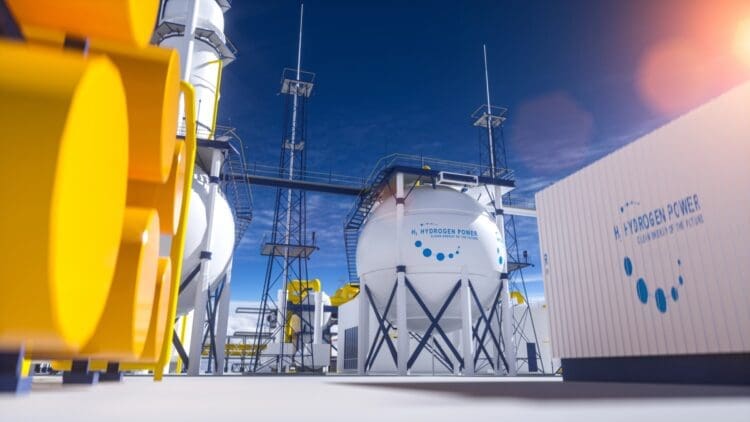In what could be considered a game-changing move, the H2Med alliance announced at an event in Berlin that it has added 40 new members to its ranks. The H2Med alliance aims to invigorate the European Union’s hydrogen corridor by supporting the organizations and companies that aim to develop massive cooperative hydrogen projects in the EU. By adding the 40 new members, the total stakeholders in the alliance now sit at 49, with more on the way if the current trend continues.
The H2med Alliance has taken considerable steps to establish a cooperative relationship between its partners
Hydrogen was there at the beginning of the universe and remains the most abundant element in the known universe. For a very long time indeed, the nations of the world, in particular those with alternative energy generation ambitions, have sought to increase the attention paid to the hydrogen sector.
At an event in Germany’s capital city, Berlin, the stakeholders of the H2Med alliance revealed that it has added an astonishing 40 new members, which can only benefit the lofty ambitions of cooperative relationships in the most mature hydrogen corridor in the European Union.
The H2med Alliance was launched in December 2024 by the five promoters of the H2med Corridor, which include:
- REN (Portugal)
- Enagás (Spain)
- NaTran and Teréga (France)
- OGE (Germany)
Along with leading companies in the energy and technology sectors, the H2Med alliance aims to consolidate itself as a reference platform for the development of the H2Med corridor in the EU.
The Deputy Director-General for Energy of the European Commission, Mechthild Wörsdörfer, underscored the European Commission’s support for the priority “Energy Highways” presented by President Ursula von der Leyen in her State of the Union address on September 10.
Institutional representatives emphasized the importance of cross-border cooperation
Gone are the days when countries were left to their own devices to develop innovative energy solutions to meet the rising power demands in their regions. Nowadays, the global community is fostering cooperation with several cross-border institutions and companies in the energy sector.
The meeting in Germany saw a vast number of government representatives in attendance, which underscores the cooperative narrative that the H2Med alliance is developing. Industry insiders emphasized the need to coordinate timelines to ensure the economic viability of projects in the hydrogen sector.
The European Union’s leadership released a statement underlining the role that hydrogen plays in the region.
“Renewable hydrogen is a crucial component of our strategy for a cost-effective clean energy transition and to get rid of Russian fossil fuels in some industrial processes. Clear rules and a reliable certification system are key for this emerging market to develop and establish itself in Europe. These delegated acts provide much-needed legal certainty to investors, and will further boost the EU’s industrial leadership in this green sector.” – Kadri Simson, Commissioner for Energy
In contrast to the developments that the H2Med alliance has reported, the Energy Information Agency has reported that the outlook for the hydrogen sector will decline by 2030, pointing to a need for more cooperation in the sector.
The commitments made by the H2Med alliance underscore the importance that hydrogen plays in the energy sector
Despite the EIA reporting that the growth in the hydrogen sector will slowly decline over the next few years, several nations have announced massive hydrogen projects that will alleviate the pressure on their electricity grids, like a huge 500-MW project in China. Hydrogen is an untapped resource that is yet to be fully explored, but the global community is making progress in that regard by fostering cooperative relationships, underscored by the announcement of 40 new members to the H2Med alliance. Hydrogen, it seems, will be a part of the future of the global energy sector, like it or not.







